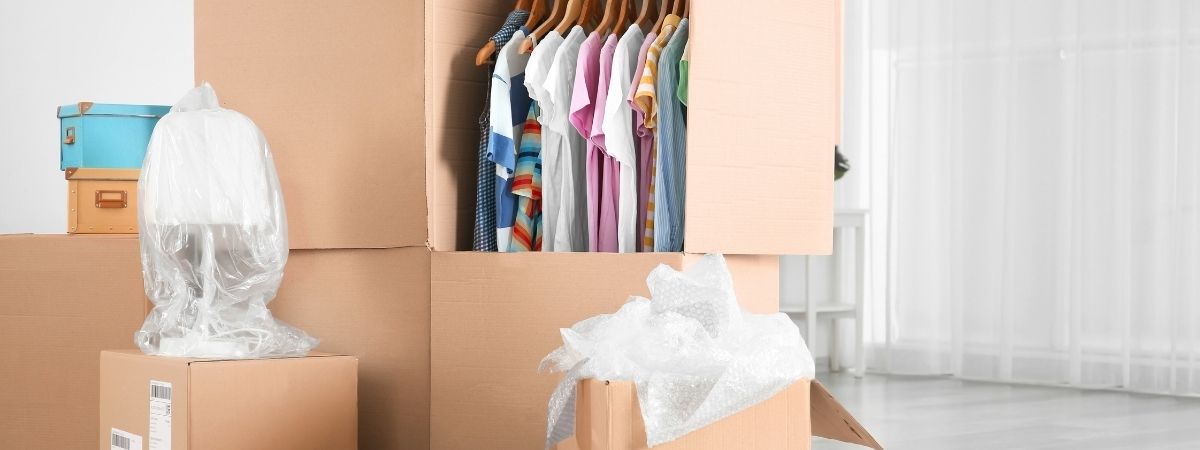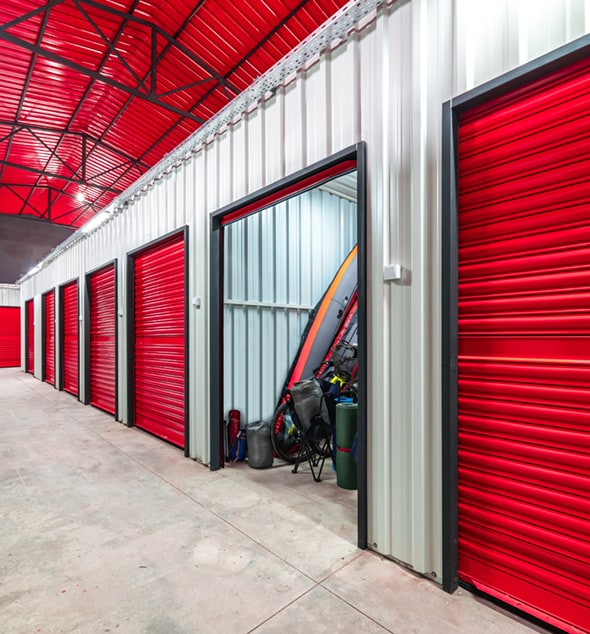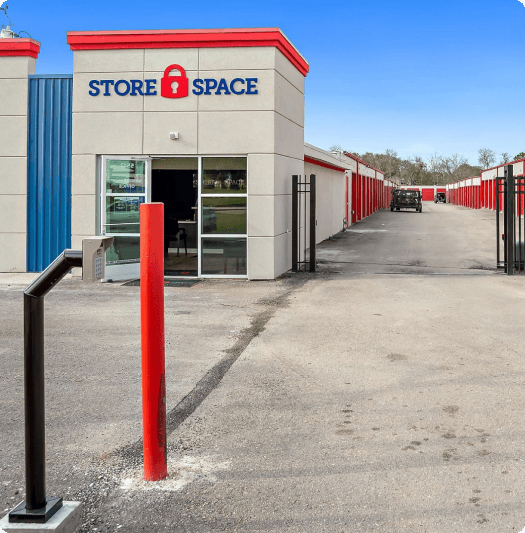Insider's Guide: The Best Way to Store Clothes in Storage Units

To make your clothes last a long time and prevent damage during short-, long-term or seasonal storage, use the methods below to store your clothes in storage units the right way.
Wash and Dry Before Storing
It is important to wash and dry your clothes before putting them into storage. Any dirt, debris, food, or odors on your clothes can seep into the fabric and cause smells that are hard to get rid of. Any lingering moisture will cause mold and mildew, so make sure to completely dry your clothes and wait 1 to 2 hours after they have come out of the dryer before packing.
Folding Your Clothes Right
For anything that can stand a few folds and therefore doesn’t need to be hung in a wardrobe box, fold your clothes like a pro. We recommend watching Chasing The Look’s video: How to Fold Clothes to Save Space & Prevent Wrinkles to fold your clothes the right way and prevent wrinkles. When it comes time to pack your clothes, they will use a minimal amount of space.
The Best Containers for Storing Clothes in Storage Units
Wardrobe boxes
Anything that you’d normally store on a hanger, like delicates and dress wear, should be kept in a wardrobe box. For added protection, store suits and blazers in garment bags. Make sure to fold dress pants correctly. If your dress is too long for the box, use this hack.
- Blazers & sport coats
- Dress pants
- Linen dress shirts
- Blouses
- Dresses & blouses
- Silk garments
What is a wardrobe box? A wardrobe box is a cardboard box with a hanging bar across the top. If you’re moving or putting your clothes in storage, these boxes are a convenient option for clothes that need a hanger. Wardrobe boxes are usually pretty big at 2 x 2 feet wide and 4 feet tall: enough to fit 8-10 articles of clothing.
Pro tip: Take off the bar, add the clothes, then re-install the bar for easier packing.
Airtight plastic storage bins
Store basic clothing items in a plastic storage bin or tote, remembering to fold them properly. Airtight plastic storage bins are the ideal solution because they keep out moisture and therefore limit mold and mildew from growing. These containers are great for clothes and shoe storage alike. As an extra protective measure, use silica gel desiccant packets to make sure no moisture is left inside your containers. Add a dryer sheet to keep that freshly washed smell. We recommend to carefully store hats in plastic storage bins. Learn how to properly store hats. For long term storage, ties are best kept folded or rolled in plastic bins—learn how to store ties with this blog.
- Tops
- Bottoms
- T-shirts
- Sweaters
- Hoodies
- Pants
- Jeans
- Shoes
- Swimsuits
Vacuum bags
Anything that you don’t mind being wrinkled can be stored short-term in vacuum packing bags to save space. Warning: Do not store wool in vacuum bags. Vacuum packing inevitably causes wrinkles that may become permanent. In addition, the vacuum seal compresses the clothing fibers so natural fiber and wool clothing should not be vacuum-packed.
- Socks
- Underwear
- Synthetic gym shorts
- Belts (roll these loosely)
Cardboard boxes are a short term solution
If cardboard boxes are all you have, then cardboard will do fine as a clothes storage container for a few months. Choose another option if you live in a hot, humid climate or you need to store your clothes for 6 months or longer.
Add Cedar
Give yourself an edge against unwanted visitors with cedar chips or blocks. Cedar naturally repels pests and smells better than chemicals that might also be harmful to your clothing.
Use Labels
Grab some tape and a Sharpie and jot down what each box has in it, like “winter” or “jackets.” Depending on how many boxes or bins you end up using, this will be very helpful when you want to grab seasonal clothing or when you’re unpacking your storage unit after a move. Packing and storing clothes away for the winter is a common practice, so check out our guide for storing clothes for the winter.
Stack
When all of your clothes are neatly inside their containers, stack them and put the wardrobe boxes on top. If you are using plastic bins, you don’t need to worry about what’s on top, but if you have to use cardboard boxes be careful of stacking anything heavy on top. Put your bins of seasonal clothes closer to the front of the unit to access them easily. For more storage unit organization, learn how to organize a storage unit.
Extra Tip: Fold a Dryer Sheet in with Your Clothes
Clothes tend to absorb any smells around them. Dryer sheets are an easy solution to keep your clothes smelling good and not pick up that “been in the closet for a year” smell.
Climate-controlled Storage Units are Ideal for Clothes Storage
With these tips, your clothes will be ideally prepared to be stored inside storage units. Fragile fabrics can benefit from climate-controlled storage. Climate-controlled units will keep everything at room temperature and ideal humidity, so you could get away with less preparation and your clothes will store much longer.
Now that you know the best way to store clothes in storage, it's time to get a self-storage unit. At Store Space, we make it easy and affordable to get the storage you need. Start with our storage location finder for the store nearest you!.







